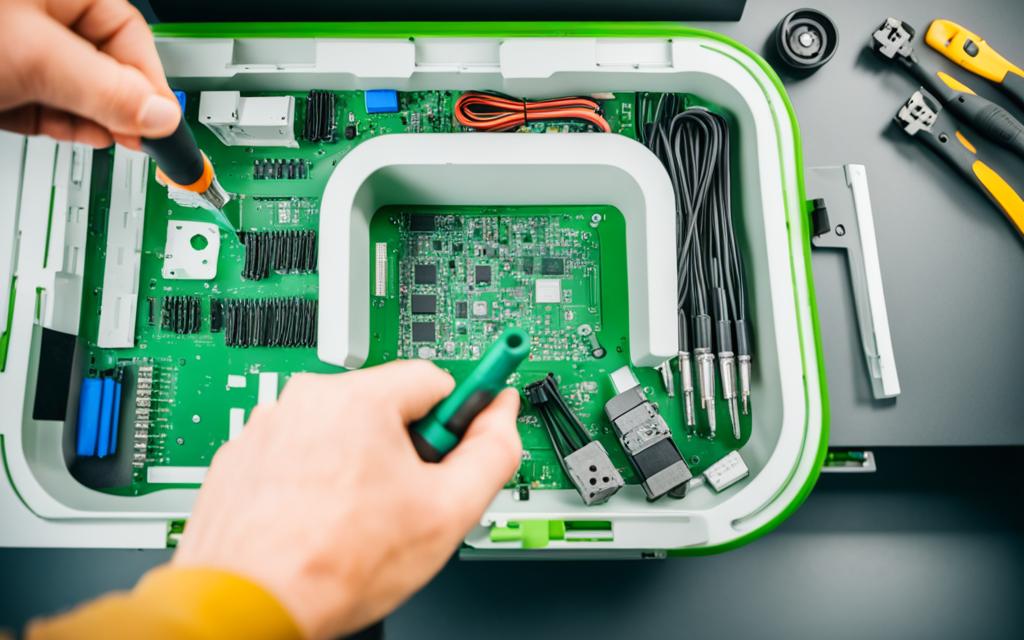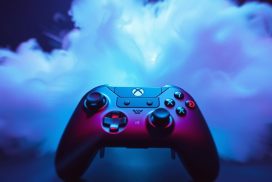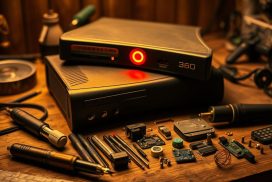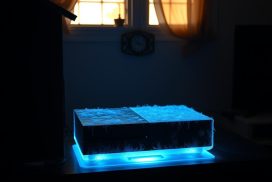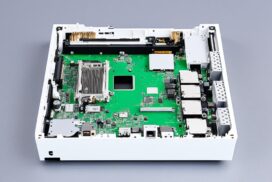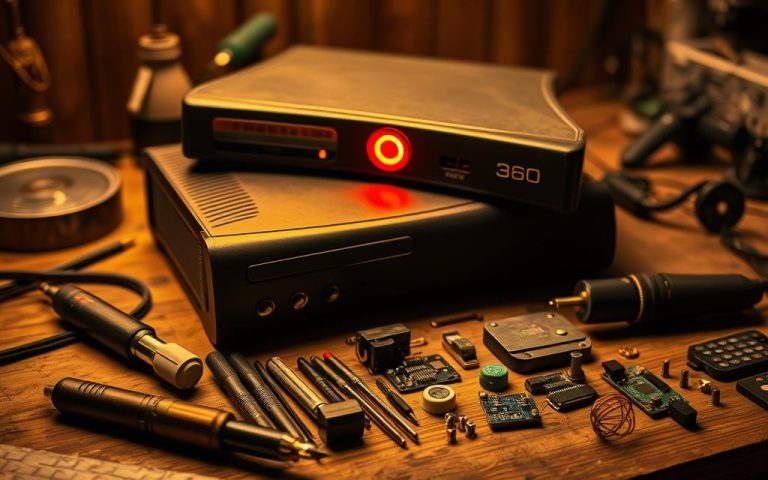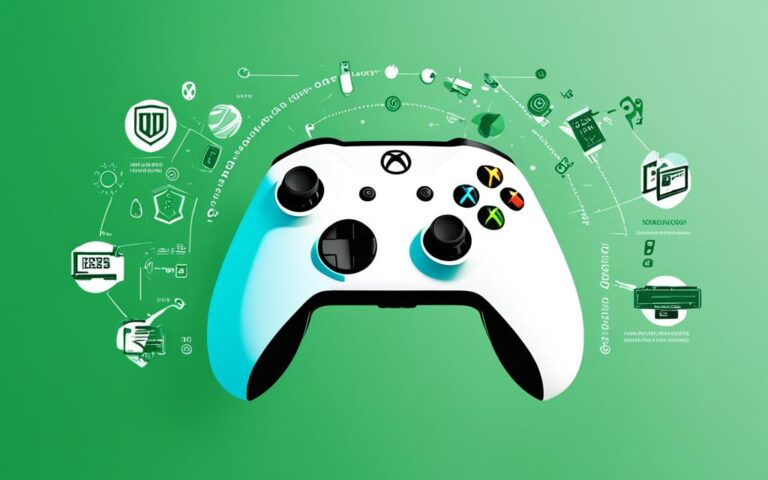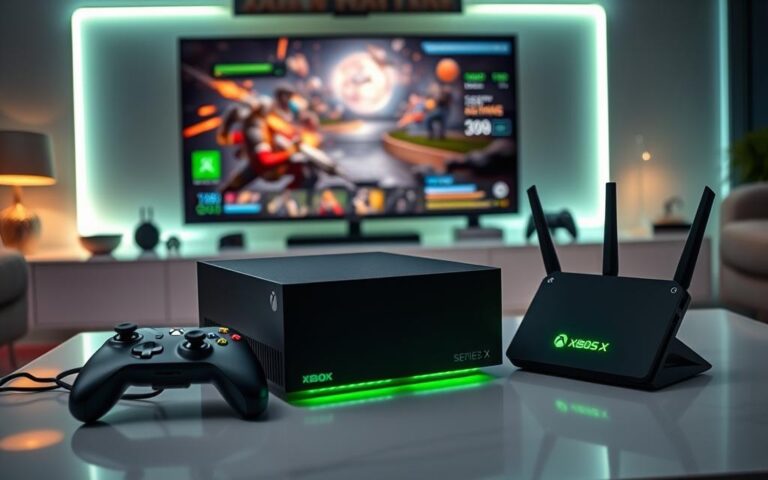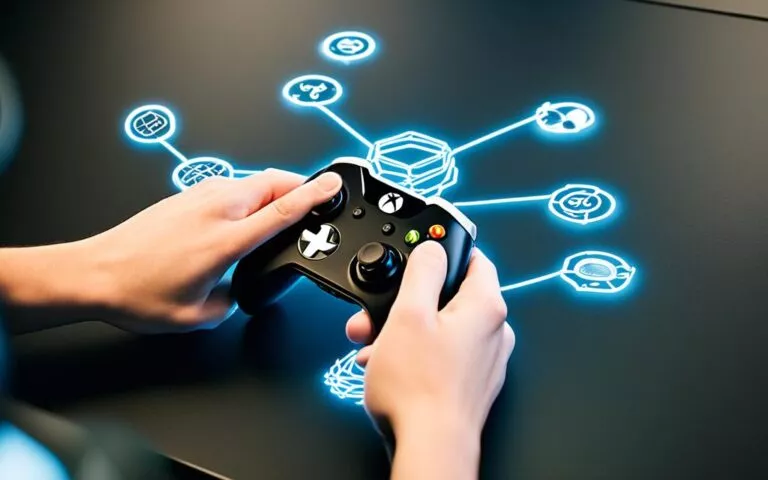The Legalities of Modding and Repairing Your Xbox
Modding and repairing game consoles like the Xbox can be a popular activity among gamers, but it’s important to understand the legalities involved. This section will explore the legal implications of Xbox modding and repair in the United Kingdom, based on factual data from various sources.
In recent years, Xbox modding and repair have gained significant attention, with enthusiasts seeking to personalize their gaming experience or fix technical issues. However, it’s crucial to navigate these activities within the boundaries of the law.
When it comes to Xbox modding, the primary concern lies in the potential violation of copyright law and digital locks imposed by console manufacturers like Microsoft. By altering the console’s firmware or removing digital locks, gamers may be infringing on intellectual property rights and facing legal consequences.
The legality of Xbox repair is also a matter of contention. While repairing your own Xbox console for personal use is generally permitted, certain actions, such as unauthorized repairs or using counterfeit parts, can still lead to legal repercussions. It’s essential to understand the specific legal provisions surrounding console repairs in the United Kingdom.
Throughout this section, we will delve into the intricacies of the legal landscape surrounding Xbox modding and repair, providing a comprehensive understanding of the rights and obligations of gamers in the United Kingdom.
Stay tuned as we navigate the complex world of Xbox modding and repair, shedding light on the legalities that every Xbox enthusiast should be aware of.
Understanding the Copyright Law and Digital Locks
The root of the legal issues surrounding Xbox modding lies in copyright law and digital locks. Manufacturers like Microsoft lock down the software used in their consoles, making it illegal to remove or alter the digital locks. This provision of the US copyright law prevents gamers and repair technicians from fixing their consoles without facing legal consequences and hefty fines.
To comprehend the legal implications, it is crucial to understand the concept of copyright law. Copyright law grants exclusive rights to the creators of original works, such as video games, protecting their intellectual property from unauthorized use or reproduction. This means that modifying or tampering with the software, including the Xbox firmware, without proper authorization infringes upon the copyright holders’ rights.
Moreover, console manufacturers implement digital locks, also known as digital rights management (DRM), to control access to their software. Digital locks aim to prevent piracy and ensure that only genuine and authorized copies of games and software are used on their consoles. These locks prevent unauthorized modifications and safeguard the integrity of the system.
The enforcement of copyright law and digital locks creates a challenging legal landscape for Xbox modding and repair. The practice of removing or bypassing the digital locks to access and modify the firmware violates both the copyright law and the terms of service established by console manufacturers.
While the motivations behind Xbox modding may range from personal customization to enabling unauthorized gameplay, it is important to recognize that these activities come with legal risks and potential repercussions.
Console manufacturers, such as Microsoft, take copyright infringement seriously and actively pursue legal action against individuals or groups engaged in unauthorized modifications or software piracy. Violating copyright law can result in severe penalties, including substantial fines and even imprisonment.
To further emphasize the significance of copyright law and digital locks in the realm of Xbox modding, consider the following table:
| Topic | Impact |
|---|---|
| Violation of Copyright Law | Legal consequences, fines, and potential imprisonment |
| Bypassing Digital Locks | Violates terms of service, threatens the integrity of the console software, and may result in permanent bans from online services |
| Piracy | Supports unauthorized distribution, negatively impacts game developers and publishers, and can lead to legal action |
This table illustrates the potential consequences of disregarding copyright law and digital locks when engaging in Xbox modding activities. It highlights the legal ramifications, the threat to the console’s functionality, and the negative impact on the gaming industry.
It is essential for gamers and repair technicians alike to recognize and respect copyright law and digital locks when considering Xbox modding or repair. Understanding the legal boundaries can help individuals make informed decisions while protecting their rights and avoiding legal repercussions.
The Escape Hatch: Exemptions and Right to Repair
Every three years, the Librarian of Congress has the authority to allow circumvention of digital locks for certain products. This exemption process presents an opportunity for advocates of Right to Repair, such as iFixit, to request the legalization of console repairs. However, three years ago, the request for video game repair exemption was denied, leaving console gamers with limited options.
The Exemption Process
The exemption process provides a means for the public to petition for exemptions to the anti-circumvention provisions of the Digital Millennium Copyright Act (DMCA). This process recognizes that there are legitimate reasons to bypass digital locks, such as enabling repairs or modifications that do not involve infringing copyright. The outcome of the exemption process can have a significant impact on the legality of console repairs.
The Right to Repair Movement
The Right to Repair movement advocates for consumers’ rights to repair their electronic devices, including gaming consoles, without facing legal barriers. By legalizing console repairs, consumers can have greater control over their devices and reduce the reliance on manufacturers or authorized repair centers. iFixit, a leading advocate for the Right to Repair, has been at the forefront of the movement, raising awareness of the need for a fair and accessible repair ecosystem.
“The denial of video game repair exemption limits the options available to console gamers, forcing them to rely on manufacturer-approved repair services or face legal consequences for attempting to fix their own devices,” says Kyle Wiens, Co-founder of iFixit.
Implications for Console Gamers
The denial of the video game repair exemption has left console gamers with limited choices when it comes to repairing their devices. Without the legal protection to repair their consoles, gamers may feel compelled to seek unauthorized repair services, risking potential damage or voiding their warranties. The limited availability of authorized repair centers can also result in delays and increased repair costs.
Moreover, the denial of the repair exemption hampers the advancement of the Right to Repair movement, hindering efforts to establish comprehensive legislation that ensures consumers’ ability to repair their own electronic devices legally.
Exploring Alternatives
While the denial of the repair exemption is a setback, alternative options exist for console gamers who seek repairs outside of manufacturer-approved channels. One such option is seeking assistance from independent repair technicians who specialize in console repairs. These technicians often have the expertise and tools to diagnose and fix various console issues, providing an alternative to costly manufacturer repairs.
Another alternative is exploring community and online forums where console enthusiasts share their troubleshooting and repair experiences. These platforms can offer valuable insights and guidance on resolving common console issues, empowering gamers to tackle repairs themselves with the support of a community.
| Pros | Cons |
|---|---|
| Greater control over device repairs | Limited legal protection |
| Reduced reliance on manufacturer-approved repair services | Potential damage or warranty voiding |
| Access to independent repair technicians | Delays and increased repair costs |
| Community support and troubleshooting guidance | Limited availability of authorized repair centers |
Consequences of Modding and Repairing Your Xbox
Modding or repairing your Xbox console can have both legal and technical consequences. While minor modifications may go unnoticed, engaging in piracy or distributing illegal firmware hacks can lead to serious legal action, including arrest and hefty fines. Additionally, console manufacturers may take strict measures against individuals caught modding their devices, such as imposing account bans, revoking access to purchased games, and voiding warranties.
It is crucial for Xbox users to understand the potential ramifications of modding or repairing their console beyond the excitement of customization and enhanced performance. Although modding can offer unique experiences and features, it is important to weigh the risks involved. By engaging in illicit activities, individuals not only face legal consequences but also put their investment in Xbox games and services at risk.
Console manufacturers such as Microsoft have implemented measures to detect unauthorized modifications and protect the integrity of their platforms. These measures help maintain fair gaming experiences and prevent exploitation of their systems. Users who attempt to modify their consoles with unauthorized firmware or engage in piracy can face permanent account bans, effectively losing access to online services and disrupting their gaming community involvement.
Moreover, individuals who opt to mod their Xbox console may unknowingly void their warranty. Console manufacturers typically include terms and conditions that explicitly state any unauthorized modifications will result in the cancellation of warranty coverage. This means that if a user encounters any hardware issues or glitches after modifying their console, they will have to bear the entire cost of repair or replacement without any support from the manufacturer.
“Engaging in piracy or distributing illegal firmware hacks can lead to serious legal action, including arrest and hefty fines.”
It’s worth noting that the consequences of modding and repairing your Xbox can extend beyond the realm of legality. Technical issues arising from unauthorized modifications can lead to instability, malfunction, and even permanent damage to the console. Furthermore, installing unverified software or firmware hacks poses a potential security risk, exposing users to vulnerabilities and potential breaches of personal information.
Ultimately, it is important for Xbox users to make informed decisions and understand the potential consequences associated with modding and repairing their console. While customization and enhanced performance are enticing, it is crucial to consider the legal and technical risks involved. By adhering to the manufacturer’s terms and conditions and avoiding piracy or unauthorized modifications, Xbox users can enjoy their gaming experience while ensuring peace of mind.
Continue reading to explore the significant role of game preservation and its impact on the Xbox modding landscape.
The Importance of Game Preservation
Jailbreaking or modding consoles is not always driven by piracy. Many enthusiasts engage in these practices to preserve gaming history and access older games that may be lost due to digital store closures or limited availability of physical copies. Emulation, homebrew software, and other methods are used to keep old games playable, despite the legal gray areas involved.
Game preservation is a vital undertaking for the gaming community. It ensures that classic games are not forgotten or lost to time. As technology advances and new consoles replace the old, the ability to play older games becomes increasingly difficult. Digital store closures, where games are no longer available for purchase or download, pose a significant challenge for gamers who wish to experience these titles.
Emulator software and custom firmware are instrumental in game preservation efforts. Emulation allows games to be played on platforms other than the original console, providing a lifeline for games that may otherwise become unplayable. This software enables gamers to experience the rich history of gaming by recreating the hardware and software environments of older consoles.
“Preserving the history of gaming is essential for understanding the evolution of the medium and appreciating the cultural significance of past titles,” says Mark Thompson, a gaming historian. “Through game preservation efforts, we can explore the roots of modern gaming and ensure that these valuable experiences are accessible for future generations.”
Homebrew software is another avenue for game preservation. It refers to unofficial games and applications developed by independent developers for older consoles. These projects help fill the gaps left by discontinued games and provide new experiences for players. By supporting homebrew developers, gamers contribute to the preservation and evolution of gaming culture.
While game preservation is driven by a genuine passion for gaming history, it does exist in a legal gray area. The use of custom firmware and emulator software often involves copyright infringement, as it requires bypassing digital locks and modifying software. It is important for enthusiasts to understand the legal implications and potential risks associated with engaging in game preservation activities.
Advocacy for Game Preservation
Various organizations, such as the Video Game History Foundation and The Strong National Museum of Play, advocate for game preservation and work towards ensuring the legal rights of gamers to preserve and research video games. Additionally, online communities and forums provide platforms for sharing knowledge and resources for game preservation enthusiasts.
Overall, game preservation serves as a valuable resource for gamers, historians, and cultural researchers. It allows us to celebrate the legacy of gaming and provides an opportunity for future generations to explore the origins of popular franchises and gaming trends.
Conclusion
In conclusion, it is crucial for gamers to be aware of the legalities surrounding modding and repairing their Xbox consoles. The Digital Millennium Copyright Act (DMCA) and the restrictions imposed by console manufacturers make it illegal to tamper with firmware or bypass digital locks. These regulations aim to protect intellectual property rights and prevent piracy.
However, the debate around Xbox modding legalities also highlights the significance of game preservation. Many enthusiasts engage in modding to preserve gaming history and ensure access to older games that may be at risk of being lost, especially due to digital store closures. Techniques such as emulation and custom firmware allow gamers to continue enjoying these classic titles.
While it is important to respect copyright laws and the rights of console manufacturers, there is also a need for a comprehensive Right to Repair legislation. This would provide legal avenues for gamers to modify and repair their consoles without facing severe penalties. Balancing the legal implications of Xbox modding with the preservation of gaming culture is an ongoing concern that requires further examination and consideration.
FAQ
What are the legal implications of modding and repairing my Xbox console?
Modding and repairing your Xbox console can have legal consequences. It is illegal to remove or alter the digital locks that manufacturers like Microsoft place on their consoles. Engaging in piracy or distributing illegal firmware hacks can lead to legal action, including arrest and severe fines.
What are the potential consequences for modding my Xbox console?
Modding your Xbox console can result in account bans, revoked access to purchased games, and void warranties by console manufacturers. It is important to weigh the potential risks and consequences before engaging in any modding activities.
Can I repair my Xbox console without facing legal consequences?
The legality of repairing your Xbox console depends on the specific actions taken. While minor modifications may go unnoticed, tampering with firmware or engaging in piracy is illegal and can lead to legal action.
Why do some enthusiasts engage in modding or jailbreaking their consoles?
Some enthusiasts engage in modding or jailbreaking their consoles to preserve gaming history and access older games that may be lost due to digital store closures or limited availability of physical copies. Emulation and homebrew software are used to keep old games playable.
Is there a comprehensive Right to Repair legislation in place for console repairs?
Currently, there is no comprehensive Right to Repair legislation specifically for console repairs. Advocacy groups like iFixit have attempted to request the legalization of console repairs through the exemption process but have been denied in the past.
Are there any exemptions or provisions that allow for console repairs?
Every three years, the Librarian of Congress has the authority to allow circumvention of digital locks for certain products. This exemption process presents an opportunity for advocates of Right to Repair to request the legalization of console repairs. However, three years ago, the request for video game repair exemption was denied.
How should I approach modding or repairing my Xbox console?
Before modding or repairing your Xbox console, it is crucial to understand the legal implications and the risks involved. Consider the potential consequences, both legal and technical, and weigh them against your desire for game preservation and access to older games. Consult reputable sources and legal advice if necessary.
